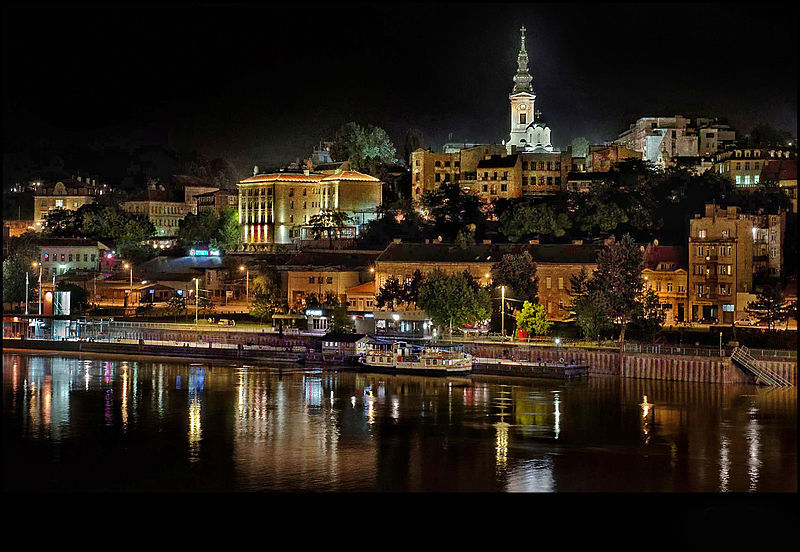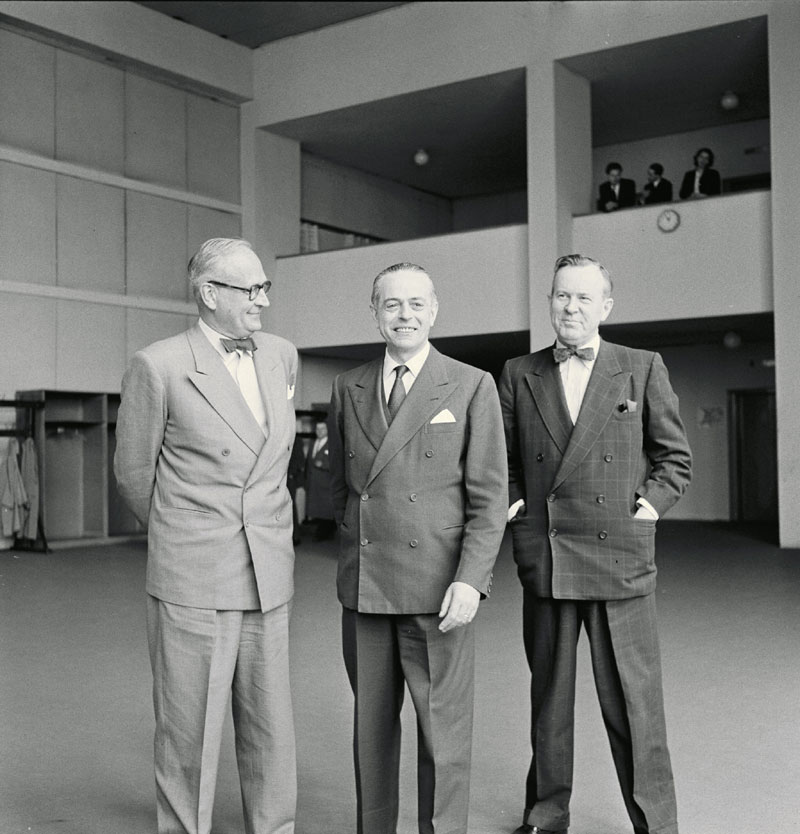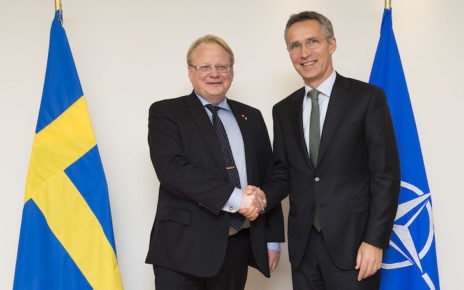Due to the growing animosity between the European Union and Russia, Moscow is increasingly depicted as a vector of instability in the Western Balkans. Its close relationship with Serbia is often denounced as hindering the EU’s regional enlargement process. While the Serbian government is still geared towards EU accession, Serbs are becoming increasingly disenchanted over the prospect of joining the European Union, to which Belgrade applied in 2009. Not unrelated to the EU’s enlargement fatigue either, this disenchantment is mainly a consequence of Russia’s strong ties with Serbia, which started in the early 2000s.
Opposition to Kosovo’s Independence
Whereas Russia often claims its strong relationship with Serbia is due to “psycho-historical” factors such as shared Orthodox and Slavic roots, the post-2000 relationship with Belgrade was initially centred around the question of Kosovo’s independence. The Kremlin opposed the province’s independence, branded it a violation of international law and saw it as indirectly threatening the integrity of Russia itself. If Kosovo could become independent without Belgrade’s consent, why could others not do the same? Putin expressed these concerns during a meeting with journalists in 2007, declaring that “[i]t would be hard for us to explain to the different peoples of the North Caucasus why people in one part of Europe have this right, but they do not”. This precedent could have strong repercussions on Chechnya, where dissident movements advocating independence were still active following the war of independence during the 1990s.
To prevent Kosovo’s partition from Serbia, Russia threatened to apply its UNSC veto in 2007 when a UN resolution backed by France, the UK and the US planned to grant the province independence and sovereignty under international control. Whereas Kosovo’s declaration of independence was legally recognized by the International Court of Justice in 2010, Moscow’s opposition received the support of the Serbian population and of several political parties. From 2009 to 2015, more than 80% of Serbs agreed that Serbia’s interests were best served by maintaining strong relationships with Russia. With the rekindling of their relationship, Moscow and Belgrade do not miss one occasion to display their strong ties when the possibility arises. For example, the Serbian government changed the 2014 commemoration date of Belgrade’s liberation by the Red Army during World War II to ensure Putin’s presence during the celebration. Serbian President Nikolic bestowed him with the country’s highest honour, the “Order of the Republic of Serbia”, created specifically for the occasion.
Serbia’s Military Neutrality
Russia’s opposition to Kosovo’s independence has had several repercussions on Serbia’s foreign policy. Belgrade, thanks to its military neutrality, increased its military cooperation with Moscow, a move often depicted as contradictory with Belgrade’s efforts toward EU accession. In April 2013, Belgrade was granted observer status at the CSTO parliamentary assembly, a collective defence organization made up of Russia, Armenia, Kazakhstan, Belorussia, Kyrgyzstan and Tajikistan. In November 2013, Serbian and Russian defence ministers Nebojsa Rodic and Sergei Shoigu signed a Strategic Partnership agreement furthering the military cooperation between the two countries. Joint military exercises entitled “Brotherhood of Aviators of Russia and Serbia” and “Slavic Brotherhood” (in cooperation with the Belarussian special forces) are now held every year, respectively since 2014 and 2015. Finally, in 2016, Russia agreed to make an important arms donation to Serbia, providing it with six MiG-29 aircrafts (A, S and UB models), 30 T-72 tanks and 30 BRDM-2 armoured reconnaissance vehicles. Nevertheless, it is important to note that the Serbian armed forces still hold more exercises with Western partners than with the Russian army: over one hundred annual exercises and engagements are held with the Ohio National Guard, NATO and the forces of western nations. In 2015, Serbia furthermore endorsed a Status of Force agreement with the transatlantic alliance, to upgrade its cooperation under the Partnership for Peace framework.
Another consequence of these ties has been Belgrade’s refusal to join in on EU sanctions against Russia following the crisis in Ukraine. In 2016, the Serbian Minister of Foreign Affairs stated that “without Russia it is impossible to protect our territorial integrity and sovereignty”. Consequently, Serbia would never join sanctions against Russia or become a member of NATO. However, as set out in the accession chapters 30 on External Relations and 31 on Common Foreign and Security Policy, sanctions are among the list of legally binding initiatives to join the EU. Hence, by refusing to apply sanctions on Russia, Belgrade is hindering its own accession process.
Economic Ties Centred Around Gas & Oil
Russia’s economic ties with Serbia, especially in the gas and oil sector, further incentivize a close relationship between Moscow and Belgrade. Since the early 2000s, Russian gas and oil companies invested in the country, often taking over national enterprises in poor economic shape. In 2003, Lukoil payed 117€ million to acquire a 79.5% share in Beopetrol—Serbia’s previously nationalized second-largest petrol chain—and its web of 180 filling stations. Additionally, Gazprom Neft bought a 51% share in Serbia’s petroleum industry (Nafta Industrija Srbije, NIS) for 400€ million in 2008. This share has grown since then, with Gazprom owning 56.15% of the shares and the Serbian government, 29.87%. In terms of natural gas and oil imports, Serbia is entirely dependent on Russia. Likewise, in the Western Balkans, Serbia is the only country which could count Russia among its top five exporters and importers in 2016. Moscow is nevertheless behind Germany, Italy and China in terms of imports and behind Italy, Germany, BiH and Romania in terms of exports.
Russia’s Public Diplomacy
Russia’s influence in Serbia has also been re-enforced through the Kremlin’s public diplomacy organs and networks. In comparison to other Balkan countries, Moscow’s networks are mostly present in Serbia, where a net decrease in the Serbs’ overall opinion of the EU can be noticed since the early 2010s. In 2016, the pro-NATO think tank CEAS notably registered twenty-one associations promoting different aspects of the Russo-Serbian relationship. Traditional Russian channels also have made inroads into Serbia. Whereas Sputnik and Russia Beyond the Headlines provide information in Serbian, RT (Russia Today) failed to broadcast content in Bosnian, Serbian or Croatian.
It is probable that Russia’s public diplomacy and ties with Serbia have shaped the public discourse in Serbia, strengthening Moscow’s positive image and discrediting that of the EU and NATO. When asked (without a list of answers) who they believe is the biggest donor to Serbia, more Serbs put Russia before the EU, continuously since 2011. This is however far from the truth, as Russia’s grants to Serbia from 2000 to 2015 represent a minuscule fraction compared to those of the EU and its member states—totalling 2.7€ billion. A similar trend can be seen with regards to NATO: most Serbs perceive the alliance as a threat and would rather request Russian protection in the event of war.
EU Enlargement Fatigue
Finally, it is probable that other issues have an impact on the EU’s loss of attractiveness in Serbia. The country’s high rate of unemployment (17%), leaves most citizens unsatisfied with the national economy. Brexit, the migrant crisis and the rise of populist leaders and terrorism in Europe have surely tarnished the EU’s power of attraction as an institution. Additionally, the EU’s enlargement fatigue, characterized by Jean-Claude Juncker’s 2014 declaration that no additional states would join the EU in the next five years, probably led Serbs to lose sight of their European dream. An interesting correlation can be noticed: while Serbia is the Balkan country where citizens stand in greatest opposition to EU accession, it is also the country where an important fraction of citizens are convinced their country will never join the EU. When Serbs were asked when they expected EU accession to happen, 41% thought Belgrade would by one day be part of Europe while 38% believed this would never happen.
Hence, Serbia’s EU accession is hindered by two factors. On one hand, Belgrade’s adoption of foreign policy positions different from those of the EU, along with its ties with Moscow, are making Serbia deviate from the path of EU membership. On the other, seeing the EU’s enlargement fatigue, Serbs are becoming increasingly disenchanted with the idea of joining Europe, which may lead the Serbian government to reconsider its European ambitions. The responsibility to prevent such eventuality lies in the hands of Brussels. A more ambitious European Balkan policy with expanded scope and means, along with relatively short but feasible deadlines, could revive the optimism of Serbs regarding the idea of joining the EU. The 2019 election of a new EU Commission president and administration more favourable to Belgrade’s EU accession could potentially be the first step to putting Serbia back on track to membership.
Photo: Belgrade at night, Dani Lavi (2012) via Wikimedia Commons. Public Domain.
Disclaimer: Any views or opinions expressed in articles are solely those of the authors
and do not necessarily represent the views of the NATO Association of Canada.




